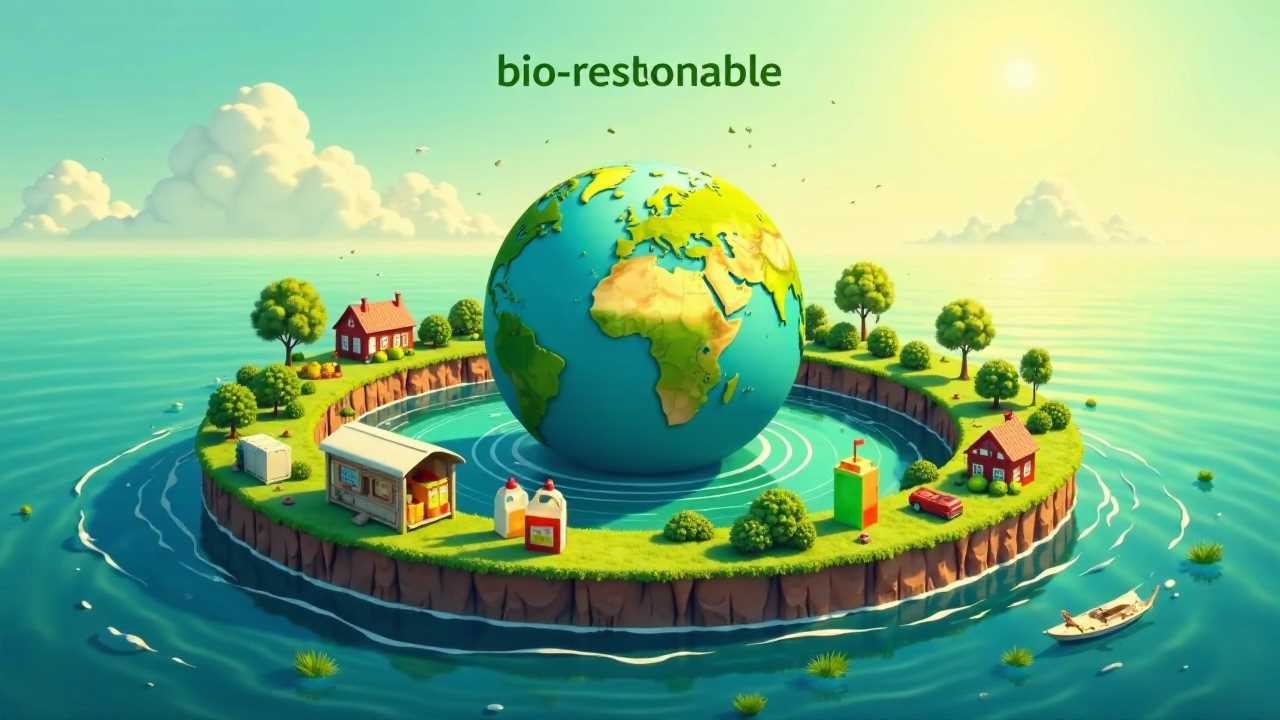
Understanding the Zero Waste Lifestyle
The Zero Waste Lifestyle is not merely a trend; it is a profound shift in how we perceive consumption and waste. At its core, this lifestyle aims to minimize waste by rethinking our habits and choices. By adopting a sustainable mindset, we can significantly reduce our ecological footprint. This lifestyle encourages us to be conscious of our actions and their impact on the planet.
The Principles of Sustainable Living
Sustainable living is about making choices that do not deplete resources or harm the environment. This involves understanding the lifecycle of products we consume and opting for those that are eco-friendly. By choosing items that are reusable, recyclable, or compostable, we contribute to a healthier planet. The principles of sustainability also encompass social equity, ensuring that our choices benefit not just ourselves but also our communities and future generations.
Minimalism: A Path to Frugality
Minimalism is a lifestyle that aligns perfectly with the Zero Waste ethos. By simplifying our lives and focusing on what truly matters, we can reduce clutter and waste. This approach promotes frugality, encouraging us to buy less and choose quality over quantity. When we embrace minimalism, we become more intentional with our purchases, leading to a significant reduction in waste.
Mindfulness in Consumption
Practicing mindfulness in our consumption habits is vital for a successful Zero Waste Lifestyle. Mindfulness encourages us to pause and reflect before making purchases. Are we buying out of necessity, or are we succumbing to impulse? By being mindful, we can make informed choices that align with our values and the principles of sustainability. This practice not only benefits the environment but also enhances our overall well-being.
Practical Steps to Achieve a Zero Waste Lifestyle
Transitioning to a Zero Waste Lifestyle requires commitment and practical steps. Here are some actionable strategies to help you get started:
1. Assess Your Waste: Begin by evaluating the waste you generate. Identify areas where you can reduce, reuse, or recycle. This assessment will provide a clear picture of your current habits and highlight opportunities for improvement.
2. Adopt Reusable Alternatives: Replace single-use items with reusable options. For instance, use cloth bags instead of plastic ones, stainless steel straws instead of disposable ones, and glass containers for food storage. These small changes can significantly reduce waste.
3. Shop Smart: When shopping, prioritize bulk items and products with minimal packaging. Support local businesses and farmers' markets, where you can find fresh produce without excessive packaging. This not only reduces waste but also supports your local economy.
4. Compost: Composting organic waste is an excellent way to reduce landfill contributions. By composting kitchen scraps and yard waste, you can create nutrient-rich soil for gardening while minimizing your waste output.
5. Educate Yourself and Others: Knowledge is power. Stay informed about sustainable practices and share your insights with friends and family. Encourage them to join you in adopting a Zero Waste Lifestyle.
The Benefits of a Zero Waste Lifestyle
Adopting a Zero Waste Lifestyle offers numerous benefits beyond environmental impact. Firstly, it promotes financial savings through frugality. By purchasing less and opting for quality items, we can save money in the long run. Secondly, this lifestyle fosters a sense of community as we connect with like-minded individuals who share our values. Lastly, living a Zero Waste Lifestyle enhances our mental well-being by promoting mindfulness and intentionality in our daily lives.
Challenges and Solutions in the Zero Waste Journey
While the journey towards a Zero Waste Lifestyle is rewarding, it is not without challenges. One common hurdle is the availability of eco-friendly products. In some areas, sustainable options may be limited or more expensive. To overcome this, we can advocate for local businesses to offer sustainable products and seek out online retailers that prioritize eco-friendly options.
Another challenge is the ingrained habits of convenience culture. Breaking free from the convenience mindset requires patience and persistence. Start with small changes and gradually incorporate more sustainable practices into your routine. Celebrate your progress and remember that every step counts.
Embracing a Sustainable Future
Mastering the Zero Waste Lifestyle is a journey towards a more sustainable and mindful way of living. By embracing principles of minimalism, frugality, and conscious consumption, we can significantly reduce our environmental impact. This lifestyle not only benefits the planet but also enriches our lives by fostering a deeper connection with our choices and their consequences. As we strive for a Zero Waste future, let us inspire others to join us in this meaningful endeavor. Together, we can create a more sustainable world for generations to come.
 SportsHollywoodLifestyleFashionHome & GardenTrendsPrivacy PolicyTerms And Conditions
SportsHollywoodLifestyleFashionHome & GardenTrendsPrivacy PolicyTerms And Conditions
